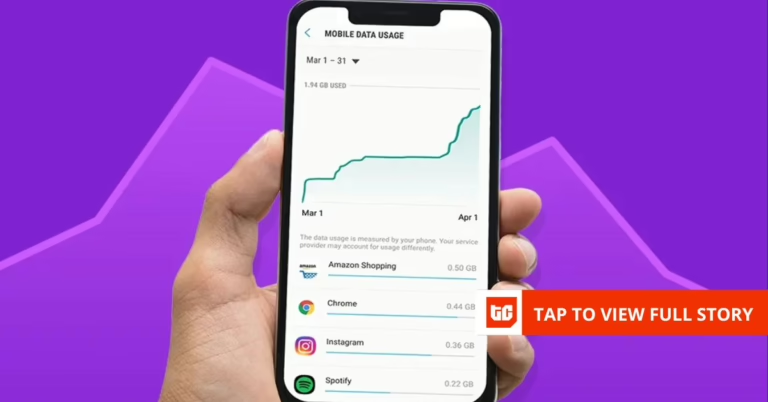Welcome to Follow the Money, our weekly deep dive into the financial performance, business models, and expansion tactics of African fintech companies and financial institutions. Tune in every Monday for fresh insights.
Every megabyte of data purchased in Nigeria not only boosts telecom companies‘ revenues but also significantly contributes to government earnings through Value Added Tax (VAT). The country’s rapid increase in data consumption has become a reliable source of fiscal inflow for the government.
In 2024, VAT collected from the information and communication technology (ICT) sector-largely driven by telecom operators-reached ₦597.65 billion ($398.04 million), marking a staggering 122.31% increase compared to ₦268.84 billion ($179.05 million) in 2022. Over the same timeframe, data usage surged by nearly 88%, climbing to 973,455.35 terabytes.
VAT, currently levied at 7.5%, is applied to every call, text message, and megabyte consumed. As data demand escalates, so does the government’s revenue from this sector.
The ICT industry encompasses telecom services, information provision, publishing, film production, audio recording, music creation, and broadcasting. Yet, telecoms dominate, contributing 81.45% (₦27.38 trillion or $18.24 billion) of the sector’s total output of ₦33.62 trillion ($22.39 billion) in 2024.
Since 2019, data services-not voice calls-have become the primary revenue driver for telecom companies. For instance, MTN’s data income soared by 108.46%, reaching ₦1.59 trillion ($1.06 billion) in 2024, up from ₦764.82 billion ($509.37 million) in 2022. Meanwhile, voice service revenues grew by 25.61% to ₦1.30 trillion ($865.80 million) during the same period.
According to the World Bank’s 2023 report, the ICT sector’s expansion is largely attributed to rising data consumption. “Even during the 2020 economic downturn, the ICT sector did not contract but grew by 10.3% year-on-year, fueled by increased data usage among households and businesses and a growing subscriber base,” the report noted.
VAT: A Crucial Revenue Stream
Nigeria’s government derives income from both oil and non-oil sectors but has been actively reducing its reliance on oil revenues due to price instability. Tax revenues, especially from VAT, have become increasingly critical to the nation’s fiscal health.
The International Monetary Fund (IMF) highlighted in 2024 that Nigeria is enhancing domestic revenue mobilization by strengthening tax administration, boosting compliance-particularly in corporate income tax-and broadening the tax base, including raising VAT rates.
Since 2020, VAT collections have surged by 338.97%, reaching ₦6.72 trillion ($4.48 billion) in 2024. By August of that year, non-oil tax revenues totaled ₦10.33 trillion ($6.88 billion), surpassing oil revenues of ₦9.83 trillion ($6.55 billion). VAT alone, at ₦4.19 trillion ($2.79 billion), stood as the largest contributor among non-oil sources.
The government forecasts VAT revenues to climb to ₦6.95 trillion ($4.63 billion) in 2025, ₦8.04 trillion ($5.36 billion) in 2026, and ₦9.09 trillion ($6.05 billion) by 2027. These funds are allocated with 15% going to the federal government, 50% to the 36 states, and 35% to local governments.
To sustain this upward trend, reforms aimed at expanding VAT coverage and improving collection efficiency are planned. Although a proposed increase of the VAT rate from 7.5% to 10% was recently blocked by the Senate, the government continues to consider this option for the medium term.
These efforts align with Nigeria’s ambition to raise its tax-to-GDP ratio from below 10% to 18% by 2027. “Until recently, our tax-to-GDP ratio was under 10%, whereas South Africa achieves 26%,” remarked Taiwo Oyedele, Chairman of the Presidential Committee on Fiscal Policy and Tax Reforms, in June 2025.
Data Consumption: The Driving Force
Data usage in Nigeria shows no signs of abating, and with recent increases in tariffs, VAT revenues from this sector are expected to keep climbing. The monthly data expenditure surged by 307.74%, reaching ₦721.18 billion ($480.31 million) in July 2025, compared to ₦176.87 billion ($117.79 million) in July 2023.
MTN’s data revenue has skyrocketed by 379.63% since 2020, hitting ₦1.59 trillion ($1.06 billion) in 2024 and already reaching ₦1.23 trillion ($819.18 million) in the first half of 2025. Airtel’s data income also rose by 50.35% since 2020, amounting to $654 million by the end of its fiscal year in March 2024.
Industry leaders remain confident. “We are strategically positioning ourselves to seize growth opportunities over the next decade. Nigeria’s demand for data is extraordinary and will continue to expand,” said Karl Toriola, CEO of MTN Nigeria, during a January 2025 interview.
Despite this growth, GSMA reports that 60% of Nigerians remain offline, primarily due to the high cost of smartphones. Efforts by the government, telecom providers, and advocacy groups aim to bridge this digital divide-more affordable smartphones will lead to increased data consumption and, consequently, higher VAT revenues.
A decade ago, Nigeria’s economy heavily depended on crude oil revenues. Today, every gigabyte of data consumed is becoming an equally vital source of government income.
Save the date! Moonshot by TechCabal returns to Lagos on October 15-16. Join Africa’s leading founders, creatives, and tech innovators for two days of inspiring keynotes, networking, and forward-thinking discussions. Secure your tickets now at moonshot.techcabal.com.
























0 Comments